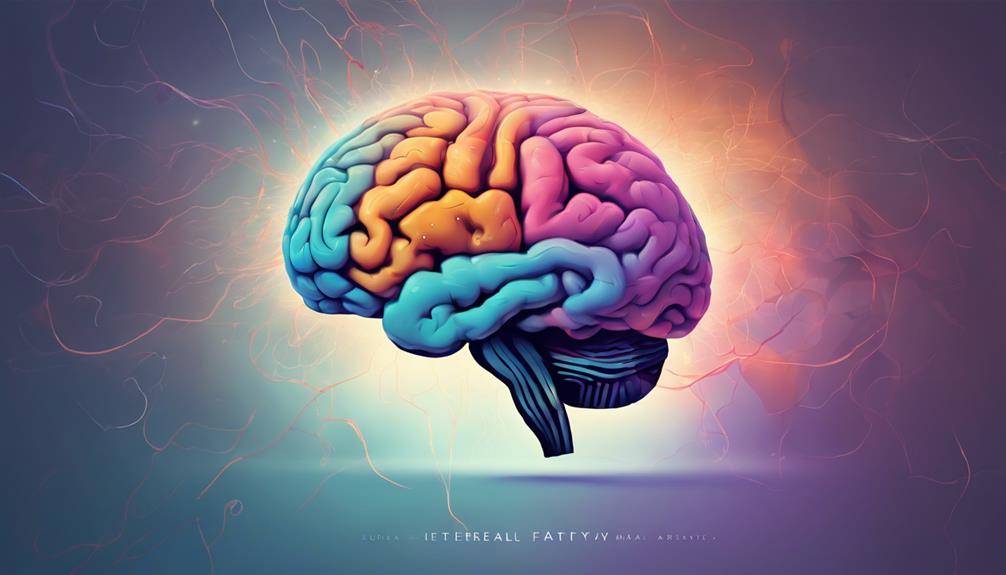Summary
- 1 Understanding of bipolar disorder
- 2 Bipolar disorder and sexual health
- 3 Hypersexuality in the manic phases
- 4 Low sex drive in depressive states
- 5 Impact on relationships
- 6 Communication with partners
- 7 Effects of medication on sexuality
- 8 Therapy and Counseling
- 9 Management of hypersexuality
- 10 Coping with low sex drive
- 11 Self-Care Strategies
- 12 Support systems
- 13 Professional Resources
- 14 Frequently asked questions
- 14.1 How does bipolar disorder affect sexual orientation or identity?
- 14.2 Can lifestyle modifications alone significantly improve sexual health in bipolar disorder?
- 14.3 Are there nonpharmacological remedies for sexual dysfunction in bipolar disorder?
- 14.4 How does bipolar disorder affect sexual consent and boundaries?
- 14.5 Is there a link between bipolar disorder and sexual trauma?
Bipolar disorder can really affect your sexual health, leading to fluctuations in sexual desire and relationship challenges. During manic phases, you may experience hypersexuality, where sexual urges seem uncontrollable. On the other hand, depressive states often cause low sexual desire. Medications can also play a role, sometimes reducing sexual desire. Engaging in open communication with your partner and doctor is crucial. Therapy can help you manage symptoms and improve the relationship dynamic. Simple self-care strategies such as regular sleep, exercise and stress management can make a big difference. To explore additional coping strategies and professional resources, continue.
Understanding of bipolar disorder

Bipolar disorder is a mental health condition that causes extreme mood swings, including emotional highs (mania or hypomania) and lows (depression). During a manic phase, you may feel euphoric, full of energy or unusually irritable. You may find yourself talking rapidly, making grandiose plans, or taking risks you would not normally take. Hypomania is a milder form of mania but still noticeable.
On the other hand, depression can make you feel hopeless, lethargic and disinterested in activities you once enjoyed. You may have difficulty sleeping, struggle to concentrate, or even self-flagellating thoughts. These mood swings can be unpredictable and affect your daily life, relationships and work.
Understanding bipolar disorder is not only about recognizing these mood swings. It is also about knowing that it is a medical condition, not a character flaw. Treatment often involves a combination of medication and therapy to help manage the symptoms. Support from loved ones and education about the disorder can also make a difference. Remember, asking for help is a sign of strength, not weakness. You are not alone, and with the right support you can face the challenges of bipolar disorder.
Bipolar disorder and sexual health
While understanding the mood swings of bipolar disorder is essential, it is important to recognize how the condition can affect your sexual health. Living with bipolar disorder can affect various aspects of your intimate life, and knowing these effects can help you manage and improve your overall well-being.
Here are four ways bipolar disorder can affect your sexual health:
- Libido Variations: You may experience fluctuations in sexual desire. At times, you may feel an increase in urgency, while at other times your interest may decrease significantly.
- Side Effects of Medications: Medications are crucial in the management of bipolar disorder but can sometimes cause sexual side effects such as reduced libido, difficulty reaching orgasm, or erectile dysfunction.
- Tensions in Relationships: Mood swings and the unpredictability of the condition can sometimes put a strain on intimate relationships, causing stress and tension between partners.
- Issues related to self-esteem: The symptoms and stigma associated with bipolar disorder can affect your self-esteem, affecting how you perceive yourself in sexual and intimate settings.
Understanding these impacts can help you take steps to address them. Open communication with your partner and health care professional is critical. Do not hesitate to seek professional advice to find effective ways to manage these challenges.
Hypersexuality in the manic phases

During manic phases, you may experience hypersexuality, which leads to an overwhelming increase in sexual thoughts, desires, and behaviors. This can be confusing and even alarming if you are not sure what is happening. Hypersexuality in bipolar disorder is not just about increased sexual desire; it is about experiencing an uncontrollable need for sexual activity. You may find yourself engaging in risky behaviors such as having unprotected intercourse, seeking multiple partners, or even seeking out strangers.
These behaviors can put your relationships and your health at risk. For example, you may hurt a partner's feelings or find yourself in situations where you are vulnerable to sexually transmitted infections. It is crucial to keep in mind that these actions are not a reflection of your true self, but rather symptoms of your condition.
To manage hypersexuality, try to be open with your health care provider. They can help you with strategies such as medication adjustments or therapy. It may also be helpful to establish clear boundaries and have honest conversations with your partner about what is happening. Understanding that hypersexuality is part of your bipolar disorder can help you feel less isolated and more in control.
Low sex drive in depressive states
Just as manic phases can lead to hypersexuality, depressive states often lead to an obvious decrease in sexual desire. When you are in a depressive state, your interest in sex may decrease significantly. This can be frustrating and confusing, but it is a common experience for many people with bipolar disorder.
Here is how low sex drive in depressive states can manifest itself:
- Lack of interest: You may feel no desire or arousal for sexual activity, which can be a stark contrast to how you feel during manic phases.
- Physical symptoms: Fatigue, changes in appetite, and sleep disturbances may contribute to decreased sexual desire.
- Emotional withdrawal: Feeling hopeless or numb can make it difficult to connect with your partner or feel motivated to participate in intimate activities.
- Side effects of drugs: Some medications used to treat bipolar disorder can also reduce sexual desire. It is critical to talk to your doctor if you think this may be happening.
Impact on relationships

The mood and energy fluctuations of bipolar disorder can create significant problems in maintaining healthy and stable relationships. When you are in the hypomanic phase, you may feel overconfident, impulsive, and have an increased sex drive. This can lead to risky behaviors, fights or decisions that strain the relationship. On the other hand, during a depressive phase, one might feel withdrawn, have little interest in intimacy, and struggle to communicate one's needs. This can make your partner feel confused or rejected.
The unpredictability of mood swings can make partners feel as if they are walking on a minefield, uncertain how they will react from one moment to the next. It is not uncommon for them to feel as if they are on an emotional roller coaster, which can be exhaustive and lead to misunderstandings or resentment.
However, it is crucial to keep in mind that these challenges do not mean that your relationship is doomed to failure. With understanding and patience, you can overcome these difficulties together. Seeking professional help, such as therapy, can offer strategies to manage mood swings and improve your relationship. Remember, you are not alone, and there are ways to cultivate a loving and supportive connection despite the difficulties that bipolar disorder can present.
Communication with partners
Talking openly with your partner about how bipolar disorder affects your sexuality is crucial. Be sure to express your needs clearly, such as discussing changes in libido or emotional comfort. Address any misunderstandings together to build a stronger, more understanding relationship.
Open Dialogues Matter
Open and honest communication with your partner can greatly improve both your relationship and your well-being. Talking about how bipolar disorder affects your sexuality is not always easy, but it is essential. When you share your experiences, your partner can better understand what you are going through and how they can support you.
Here are some practical tips to help you manage these conversations:
- Choose the Right Moment: Find a quiet time when you both have time to talk. Avoid broaching the subject during an argument or when emotions are running high.
- Be Honest: Share your feelings openly. If you are experiencing changes in your sex drive or energy levels, let your partner know. This helps prevent misunderstandings.
- Listen Actively: Be sure to listen to your partner's thoughts and feelings as well. This shows that you appreciate their point of view and are committed to working together.
- Search Professional Help: Sometimes, having a therapist or counselor present can make these conversations easier. They can provide guidance and help you both communicate more effectively.
Clearly express your needs
When clearly expressing your needs to your partner, it is vital to be direct but compassionate. Start by choosing a quiet time to talk so that both of you are more likely to be receptive. Use sentences with the pronoun 'I' to explain how you feel and what you need. For example, you might say, "I feel overwhelmed when my mood swings are intense and I need some quiet time to handle it." This approach helps your partner understand your experience without feeling blamed or defensive.
Being specific about your needs is important. Instead of saying "I need support," try "I appreciate it when you take care of me daily or help me with household tasks when I'm feeling down." Clear and specific requests make it easier for your partner to know how to help you.
Addressing misunderstandings together
Misunderstandings are inevitable, but addressing them together can strengthen your relationship and improve communication. When it comes to bipolar disorder and its impact on sexuality, it is important to address false beliefs directly. Open and honest conversations can help both you and your partner feel understood and supported.
Here are four steps to deal with misunderstandings:
- Listening Actively: Be sure to really listen to what your partner is saying. Repeat what you have understood to show attention and clarify any confusion.
- Sharing Your Feelings: Be open about your experiences and emotions. Use sentences with the pronoun "I" such as "I feel overwhelmed when..." to express your feelings without blaming your partner.
- Seeking Information Together: Get informed about bipolar disorder and its effects on sexuality. Reading articles, attending workshops, or talking with a psychotherapist can offer valuable perspectives.
- Developing a Plan: Create strategies to handle misunderstandings when they arise. Whether it's scheduling regular checkups or setting boundaries, having a plan can make it easier to get through difficult times.
Addressing misunderstandings as a team not only clears up falsehoods, but also builds a foundation of trust and resilience in your relationship. Remember, it is about growing together and supporting each other every step of the way.
Effects of medication on sexuality

When you hire medications for bipolar disorder, you may notice changes in your sexual health. Common side effects include. reduced libido or difficulty reaching orgasm, but there are ways to manage these problems. Let's look at some strategies to help you cope and maintain a healthy sex life.
Common side effects
Medications for bipolar disorder can sometimes cause changes in sexual desire and performance. It is important to know that you are not alone in experiencing these side effects and that there are ways to manage them. Here are some common side effects you may face:
- Reduced Libido: You may notice a decrease in sexual desire. This is a common side effect, especially with certain mood stabilizers and antipsychotics.
- Erectile Dysfunction: For men, some medications can make it difficult to achieve or maintain an erection. This can be frustrating, but it is a known problem with certain medications for bipolar disorder.
- Delayed Orgasm: Both men and women may have difficulty reaching orgasm. This delay may be caused by medications that affect your nervous system.
- Reduced Arousal: You may find it more difficult to become sexually aroused. This can happen because some drugs affect brain chemistry related to arousal.
These side effects can be distressing, but understanding them is the first step. Always communicate with your doctor about what you are experiencing. They can adjust your medication or suggest alternatives to help manage these side effects. Remember, your well-being is important and there are options available to support you.
Coping Strategies
To address the sexual side effects of medication for bipolar disorder, it is critical to communicate openly with your primary care physician about your experiences. Do not hesitate to share any concerns about your sexual health, whether it is decreased desire, difficulty with arousal, or other problems. Your doctor can only help you if he or she understands what you are going through.
Sometimes, changing the dosage or switching to another medication can make a significant difference. If a medication is causing problems, there may be alternatives with fewer sexual side effects. Always consult your doctor before making changes on your own.
In addition to medication adjustments, you may find that lifestyle changes can help manage these side effects. Regular exercise, a balanced diet, and good sleep habits can improve your overall well-being, which could also positively affect your sexual health.
Finally, consider seeking support from a psychotherapist or counselor. Talking about your feelings and experiences with a professional can offer emotional relief and practical coping strategies. Remember, you are not alone in this, and there are several ways to deal effectively with these challenges.
Therapy and Counseling
Therapy and counseling often play an essential role in helping people with bipolar disorder navigate the complexities of their sexuality. It is common to feel overwhelmed or confused, and talking to a professional can make a significant difference. Here are four key ways in which therapy and counseling can help:
- Understanding Triggers: A therapist can help you identify what triggers mood swings that might affect your sexuality. This understanding can help you take proactive steps to manage these triggers.
- Improving Communication: Counseling can teach you how to communicate effectively with your partner about your needs and boundaries. This is critical to building a supportive and understanding relationship.
- Developing Coping Strategies: Therapists can guide you in developing personalized coping strategies that work for you. This might include mindfulness techniques, journal writing or creative activities.
- Emotional Support: Sometimes, having someone to talk to who understands can be incredibly comforting. Therapy provides a safe space to express your feelings and fears without judgment.
Seeking therapy is not a sign of weakness; it is a step toward better understanding yourself and improving your quality of life. Remember, you are not alone and help is available.
Management of hypersexuality

Managing thehypersexuality can begin by recognizing your behavioral triggers, such as stress or certain social contexts. Establish healthy boundaries, such as limiting risky situations and having open conversations with your partner, can be really helpful. Remember, it is okay to ask a therapist for support to guide you through these steps.
Recognizing Behavioral Triggers.
A vital step in managing hypersexuality in bipolar disorder is to recognize the specific behavioral triggers that trigger it. By identifying these triggers, you can better anticipate and manage episodes before they escalate. Here are some common triggers you may notice:
- Stressful Situations: High levels of stress can act as a catalyst for hypersexual behaviors. It is important to be aware of stressful events in your life, such as work deadlines or personal conflicts, that could trigger such behaviors.
- Sleep Pattern: Irregular sleep or lack of sleep can greatly affect your mood and increase the likelihood of hypersexual episodes. Pay attention to your sleep schedule and try to maintain a consistent routine.
- Substance Use: Alcohol and drugs can lower your inhibitions and intensify hypersexual tendencies. Try to limit or avoid substances that might worsen these urges.
- Emotional States: Intense emotions, both positive and negative, can trigger hypersexuality. Be aware of your emotional ups and downs and how they might affect your behavior.
Establishing healthy boundaries
After recognizing your behavioral triggers, it is important establishing healthy boundaries To better manage hypersexuality in bipolar disorder. Start by setting clear limits on your interactions. For example, avoid situations that could lead to impulsive sexual behavior, such as late-night meetings or online conversations with strangers. It is important to know how to say no and prioritize your own well-being.
You may find it useful to create a routine That keeps you engaged in healthy activities. Physical activity, interests or spend time with sympathetic friends can keep the mind occupied and reduce the urge to engage in risky sexual behavior. Keeping a diary to track your feelings and behaviors can also provide valuable insight into when you are most vulnerable.
Communicating openly with your partner or close friends about your condition is essential. Let them know your boundaries and ask for their support in maintaining them. If you are single, consider talking to a psychotherapist who can guide you in forming healthy relationships.
Coping with low sex drive
Coping with low sex drive in bipolar disorder can be challenging, but there are practical steps you can take to improve your sexual health. It is important to recognize that low sex drive is a common problem and that you are not alone. Here are some strategies that may help you:
- Communicate with your partner: Open and honest conversations can help you and your partner understand what you are going through. It is important to express your feelings and needs.
- Consult your doctor: Some medications for bipolar disorder can affect sexual desire. Talk to your doctor about your concerns; they may modify your medication or suggest alternatives.
- Focus on emotional intimacy: Sometimes focusing on nonsexual forms of intimacy can help. Spend quality time with your partner, participate in activities you both enjoy, and build a strong emotional connection.
- Manage stress: High levels of stress can affect your sex drive. Practice relaxation techniques such as deep breathing, meditation or yoga to reduce stress and improve your overall well-being.
Self-Care Strategies

Taking care of yourself is just as vital, and there are several self-care strategies you can adopt to support your sexual health and overall well-being. First, maintaining a regular sleep cycle can help stabilize your mood, making it easier to manage your sexual health. Try to get 7-9 hours of sleep each night.
Second, exercise is a powerful tool. It is not just about staying fit; regular physical activity helps reduce stress and improve mood. Even a daily walk can make a difference.
Third, mindfulness practices such as meditation can help you stay centered. These practices can enrich your emotional balance, which in turn can positively affect your sex drive and sexual relationships.
Here is a simple table to summarize these strategies:
| Self-Care Strategy | Benefit | Example |
|---|---|---|
| Regular Sleep | Stabilizes mood | 7-9 hours each night |
| Physical Exercise | Reduces stress, improves mood | Daily walk |
| Mindfulness | Improves emotional balance | Meditation sessions |
Support systems
A strong support system is essential for managing bipolar disorder and maintaining healthy sexual relationships. You don't have to go through it all alone. Building a network of people who understand and care about you can make a big difference. Here are some ways to create and rely on a support system:
- Family and Friends: Share your experiences with people you trust. They can offer you emotional support and help you monitor mood changes.
- Support Groups: Joining a group for people with bipolar disorder allows you to connect with others who understand what you are going through. You can share tips and coping strategies.
- Partners: Open communication with your partner is vital. Discuss how bipolar disorder affects your sexuality and work together on strategies to manage it.
- Online Community: Sometimes it is easier to find support online. There are various forums and groups on social media where you can share your experiences and get advice.
Professional Resources

While support from loved ones is invaluable, professional resources can provide the specialized help you need to manage bipolar disorder and its impact on sexuality. Therapists and psychiatrists are trained to understand the complex nature of bipolar disorder and can offer guidance tailored to your needs. They can help you manage mood swings and find strategies for maintaining healthy relationships.
Medication management is another vital aspect. A psychiatrist can prescribe medications that stabilize your mood, which can positively affect your sexual health. It is important to discuss any sexual side effects with your doctor so they can adjust your treatment plan accordingly.
Sex therapists are also a valuable resource. They specialize in issues related to sexuality and can help you and your partner overcome any sexual concerns. They can provide techniques to enrich intimacy and communication.
Support groups, both online and in person, provide a space to share experiences and gain perspectives from others facing similar challenges. These groups can be a great source of comfort and practical advice.
Frequently asked questions
How does bipolar disorder affect sexual orientation or identity?
You may wonder if bipolar disorder affects sexual orientation or identity. It doesn't change who you are attracted to or how you identify, but mood swings can affect your feelings and behaviors. During manic episodes you may feel more impulsive or have a higher sex drive, while during depressive episodes you may be less interested. It is important to recognize these patterns and seek support to manage them effectively. You are not alone in this journey.
Can lifestyle modifications alone significantly improve sexual health in bipolar disorder?
Yes, lifestyle changes can greatly improve your sexual health, even with bipolar disorder. Following a balanced diet, exercising regularly, and getting enough rest can boost your mood and overall well-being. Reducing stress through mindfulness or yoga also helps. However, it is important to combine these changes with your prescribed treatment plan. Always talk to your health care provider before making changes to confirm that they fit your specific needs.
Are there nonpharmacological remedies for sexual dysfunction in bipolar disorder?
Yes, there are nonpharmacological remedies for sexual disorders. You can try therapy, such as cognitive behavioral therapy (CBT) to improve theself-esteem And deal with emotional barriers. Regular exercise and a balanced diet can improve your overall health, including sexual health. Awareness and relaxation techniques can reduce stress, which often affects sexual function. Open communication with your partner about your needs and concerns can make a big difference.
How does bipolar disorder affect sexual consent and boundaries?
Bipolar disorder can make it complicated to manage sexual consent and boundaries. During manic phases, you may feel overconfident and take risks you would not normally consider. On the other hand, depressive phases can lead to withdrawal and confusion about your desires. It is important to communicate openly with your partner and establish clear boundaries. Always check with yourself and your partner to make sure that consent is mutual and understood.
Is there a link between bipolar disorder and sexual trauma?
Yes, there may be a connection between the bipolar disorder and the sexual trauma. People with bipolar disorder may experience impulsivity and risky behavior during manic episodes, which can put them in vulnerable situations. It is important to understand that this is not their fault. If you or someone you know is dealing with this problem, seek help to a mental health professional can provide support and strategies for safety and healing.
